What is a Discus Fish?
The discus are some of the most beautiful and reactive tropical fishes you will find. They are often referred to as the “kings of the aquarium” because of their stately movements and regal beauty. They are highly interactive fish who will greet you even when you walk into the room. They even react to things they see on TV. In this article, we’ll give you a brief overview with basic information about discus.
Orange-Tinted Yellow Leopard Discus
Discus belong to a family of fish known as cichlids, which includes the Waroo, Triangle cichlid, and Chocolate cichlid. These fish, like discus, have flat, oval-shaped bodies. Their fins are erect and large with fan-shaped caudal fins. Cichlids’ body colors are slate gray to silver with a pinkish belly and throat region. They also have a large black area on the lower part of the belly. You will find a dotted line from the gill cover to the rear area of the body. The caudal penuncle usually has a black spot. The iris of the eye is amber-gold to red, and the back half of the eye has a black marking. The fins are slate gray.
Cobalt Blue Discus and Yellow Diamond Discus
In the wild, discus are found in South America around the Amazon basin and in Southeast Asia. While it did take a while to adapt the wild discus to the life of captivity, they are now extremely popular to be kept in aquariums — right behind goldfish and koi.
Discus can make wonderful pets since they are so interactive, intelligent, and lively. If you would like to keep them as pets, you must monitor their water temperature, pH, light, and food regularly. You can keep a discus-only tank or a community tank with other fish.
Manacapuru Red and Blue Discus
All discus have several characteristics in common. However, variations based on species, habitat, and diet have developed. General discus characteristics including any or all of the following:
- A flat, almost circular, disc-shaped body, which allows it to glide with ease through plants.
- Large anal and dorsal fins add to its circular appearance.
- A steep forehead and a small terminal mouth.
- Large eyes.
- A truncated caudal fin shape.
- Having 8 or 9 faint vertical stripes on the body.
- Stripes through the eye and the tail fin are usually wider and more pronounced.
- Measuring approximately 6 inches (15 cm) in size, except for Heckels, which measure 8 inches (20 cm).
Distinguishing male and female discus can be very difficult. Adult males can develop a small lump on their foreheads, but this is not always a reliable indicator. During the spawning season, the shape of the genital papillae (round in females and pointed in males) serves as the best difference. However, this difference is often difficult to detect as well.
Discus’ bodies, fin colors, and patterns can vary greatly, depending on the species, habitat, and diet of the specific fish. For instance, in the Amazon basin, separate populations have developed different colorings and markings. Additionally, red tones are enhanced when the fish is fed food containing brine shrimp or beta-carotene, as shown in the photo below.
High-Body Marlboro Red Discus
The discus’ body color extends into the dorsal, pelvic, and anal fins. The caudal and pectoral fins are usually clear. In some varieties, however, these fins may be black. The eye iris is usually blood-red, though it can sometimes be white, amber, pink, or red. In some discus, the stripes have mostly disappeared. They are usually most noticeable in juveniles.
In this brief overview, you have seen only a few of the countless varieties of discus. Would you like to see more and learn more about these fascinating fish? Then explore our Learning Center. In the Learning Center, you will learn about discus history, the different sub-species and varieties that exist, how to set up your aquarium tank, how to nourish your discus with a healthy diet, how to monitor the discus’ environment, how to recognize and treat diseases, and even how to breed discus.
Striated Turquoise Discus
QUESTIONS
- How are discus different from other fish that you know about?
- What do you think is most interesting about discus?
- Are there any discus species in particular that you are interested in?
- What are you curious to learn about discus in our Learning Center?

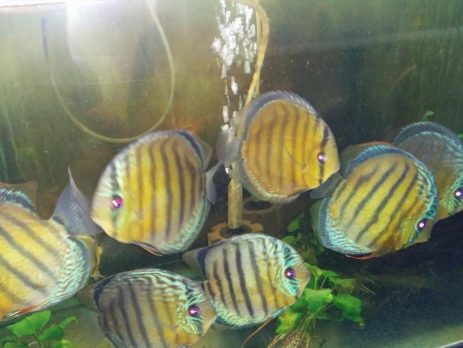
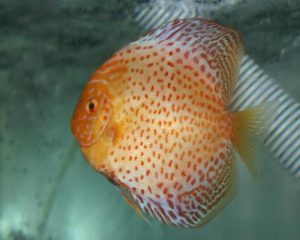
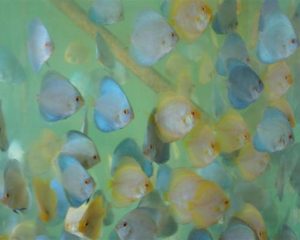
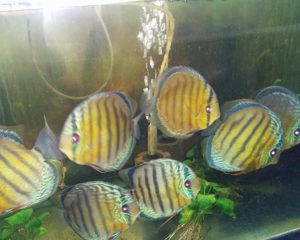
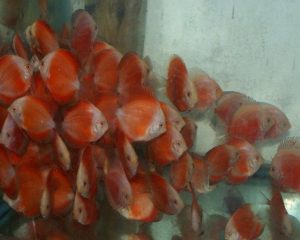
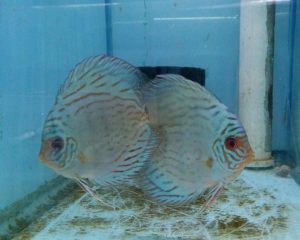
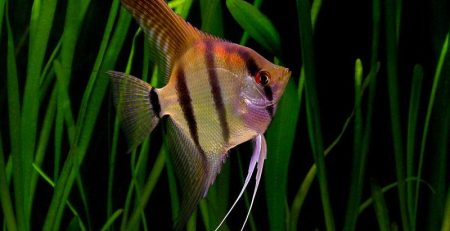

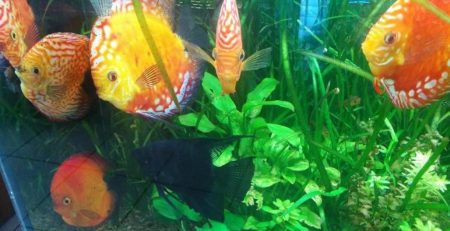
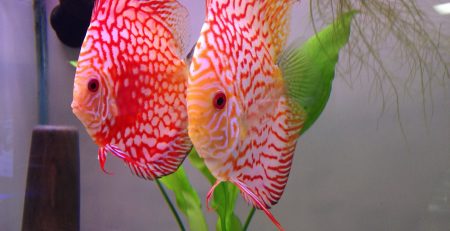
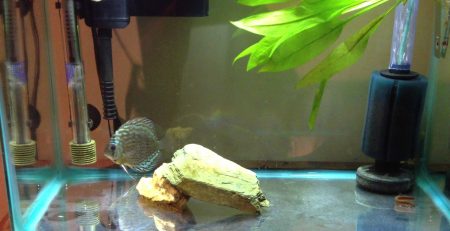
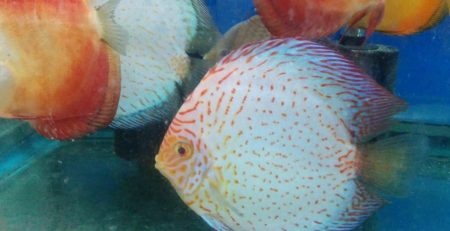
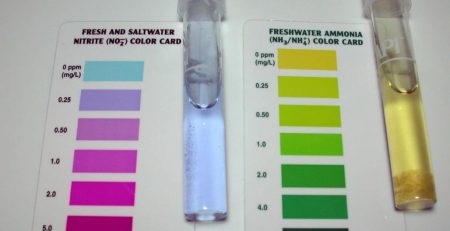

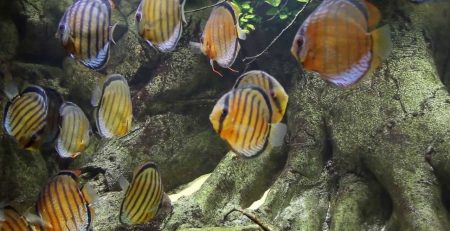
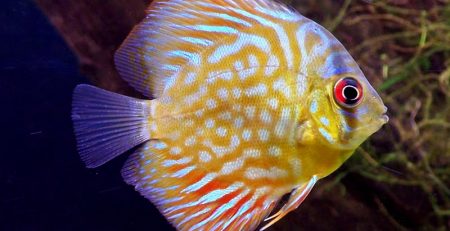
Leave a Reply
You must be logged in to post a comment.